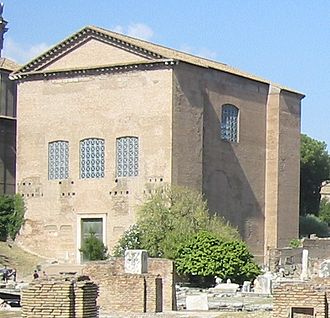Constitution of the Roman Empire
Constitution of the Roman Empire refers to the system of governance and the legal and political structures that defined the Roman Empire following the end of the Roman Republic. The transition from Republic to Empire began with the rise of Augustus (formerly Octavian) in 27 BC, marking the end of the Roman Civil Wars and the establishment of a new form of government. Unlike the Roman Republic, which relied on a complex system of checks and balances between various elected officials and bodies, the Roman Empire centralized power in the hands of the Emperor, who acted as the supreme authority.
Historical Context
The foundation of the Roman Empire was laid after the tumultuous periods of the Roman Civil Wars, which followed the assassination of Julius Caesar in 44 BC. Augustus, Caesar's adopted heir, emerged victorious from these conflicts and was granted extraordinary powers by the Roman Senate, including control over the army and the provinces. In 27 BC, he was bestowed the title "Augustus," signifying the beginning of the Roman Empire and the end of the Republic.
Structure and Governance
The constitution of the Roman Empire was not a formal written document but a collection of principles, practices, and precedents that defined the emperor's powers and the operation of the government. The emperor had the ultimate authority in all matters, including military command, judicial decisions, and religious practices. He was also responsible for appointing officials to govern the provinces, thus centralizing control.
The Senate
The Roman Senate, while retaining its name and some of its ceremonial functions, saw a significant reduction in its power and influence under the Empire. The Senate's role transitioned from that of a governing body to an advisory one, with the Emperor holding the final say in legislative matters.
Provincial Administration
The Empire was divided into provinces, each governed by an official appointed by the Emperor. These provinces were either senatorial, controlled by the Senate, or imperial, directly under the Emperor's command. This division allowed for a more efficient administration and the spread of Roman culture and law throughout the Empire.
Legal System
The legal system of the Roman Empire was based on Roman law, which evolved significantly during this period. The Emperor had the authority to enact new laws and was considered the source of all legal authority. The Praetorian Guard, initially established as the Emperor's personal bodyguard, also played a role in the administration of justice.
Military
The military was under the direct control of the Emperor, who was considered the supreme commander. The Roman legions, stationed in the provinces, were crucial in maintaining the peace and defending the Empire's borders against external threats.
Religion
Religion in the Roman Empire was closely tied to the state, with the Emperor often serving as the Pontifex Maximus, or chief priest. The Imperial Cult, which involved the worship of the Emperor as a god, was a significant aspect of religious life in the Empire.
Legacy
The constitution of the Roman Empire laid the groundwork for the development of autocratic and centralized forms of government that would influence the political landscape of Europe and the Mediterranean for centuries. Its blend of military strength, legal tradition, and administrative efficiency enabled the Roman Empire to maintain stability and expand its territories, leaving a lasting legacy on the world.
Transform your life with W8MD's budget GLP-1 injections from $125.
W8MD offers a medical weight loss program to lose weight in Philadelphia. Our physician-supervised medical weight loss provides:
- Most insurances accepted or discounted self-pay rates. We will obtain insurance prior authorizations if needed.
- Generic GLP1 weight loss injections from $125 for the starting dose.
- Also offer prescription weight loss medications including Phentermine, Qsymia, Diethylpropion, Contrave etc.
NYC weight loss doctor appointments
Start your NYC weight loss journey today at our NYC medical weight loss and Philadelphia medical weight loss clinics.
- Call 718-946-5500 to lose weight in NYC or for medical weight loss in Philadelphia 215-676-2334.
- Tags:NYC medical weight loss, Philadelphia lose weight Zepbound NYC, Budget GLP1 weight loss injections, Wegovy Philadelphia, Wegovy NYC, Philadelphia medical weight loss, Brookly weight loss and Wegovy NYC
|
WikiMD's Wellness Encyclopedia |
| Let Food Be Thy Medicine Medicine Thy Food - Hippocrates |
Medical Disclaimer: WikiMD is not a substitute for professional medical advice. The information on WikiMD is provided as an information resource only, may be incorrect, outdated or misleading, and is not to be used or relied on for any diagnostic or treatment purposes. Please consult your health care provider before making any healthcare decisions or for guidance about a specific medical condition. WikiMD expressly disclaims responsibility, and shall have no liability, for any damages, loss, injury, or liability whatsoever suffered as a result of your reliance on the information contained in this site. By visiting this site you agree to the foregoing terms and conditions, which may from time to time be changed or supplemented by WikiMD. If you do not agree to the foregoing terms and conditions, you should not enter or use this site. See full disclaimer.
Credits:Most images are courtesy of Wikimedia commons, and templates, categories Wikipedia, licensed under CC BY SA or similar.
Contributors: Prab R. Tumpati, MD


